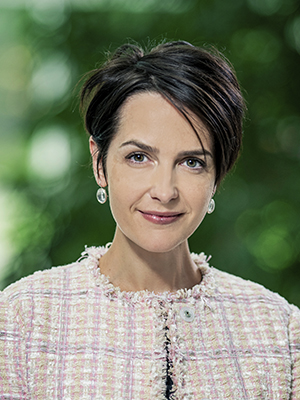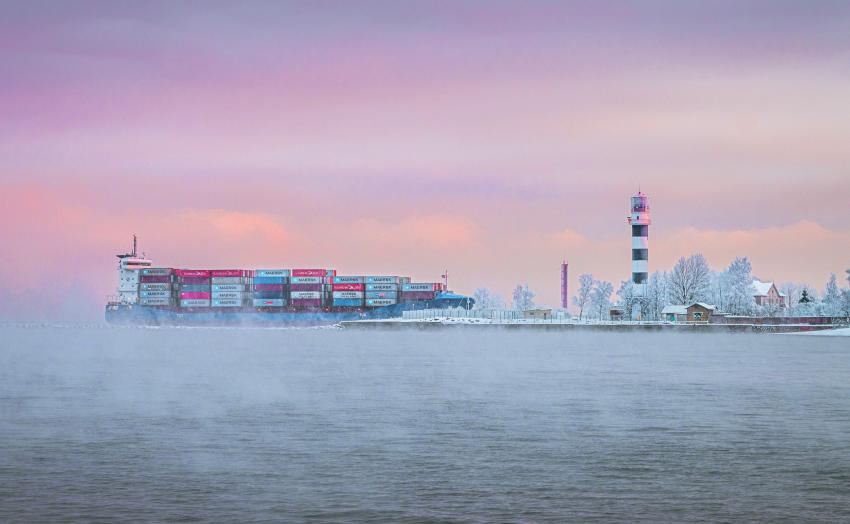On December 6, the annual Freeport of Riga management meeting with stevedores working in the port took place. The purpose of the meeting was to discuss the port's work in current year, outline plans for the next year, as well as discuss the port's future growth strategy. In the coming years, the development of the port will focus not only on cargo handling and transshipment, but also on the ongoing digitization of the port processes, and the development of the industrial cluster. Furthermore, significant investments in the maintenance and development of the port infrastructure are planned.
“A modern port has long ceased to be just a place for cargo transshipment. Together with powerful port entrepreneurs, we can develop the Port of Riga into a high value-added industrial cluster with logistics service providers, modern production facilities, innovation and research centers. Together, we must continue the comprehensive digitization and automation of the port, as well as implement green energy, environment and neighborhood projects, laying the foundations for the sustainability of the Port of Riga, the city and our country,” emphasized Gints Sīviņš, Chairman of the Freeport of Riga Board, while addressing the port merchants.
“Despite the overall drop in cargo volumes at the port, I believe that the port companies have worked successfully despite the difficult and unpredictable situation in the industry. Transit cargo of energy resources (coal and oil products) have practically completely left the port, but all other segments are developing successfully, in compliance with the market situation. We should not refer to a drop in competitiveness, because a significant reduction in the handled cargo volume is observed in absolutely all ports of the Baltic States,” said Ansis Zeltiņš, the Freeport of Riga CEO, providing positive evaluation of the port's operation.
This year has been very productive in the containerized cargo segment - according to data for 11 months, the turnover in this cargo group has increased by 7% and most likely the year will end with a new record in the Port of Riga. The agricultural cargo segment has grown by 15% compared to last year. It has already been reported that this year's cruise season has been very successful, bringing 79.6 thousand tourists to Riga, which is a new record for the number of cruise passengers.
“Although the total handled cargo flow volume is lower, and the total revenue of the port is decreasing accordingly, we have been able to maintain a positive financial result and continue to invest in the development of the port - both in the improvement of the port infrastructure, technologies, as well as in the development of environmental and alternative energy projects,” emphasized Gints Sīviņš.
In 2022, port merchants invested EUR 30.6 million in infrastructure development, but over the last five years (2018-2022) the amount of investment amounted to EUR 166 million. The largest volumes were invested into equipment and machinery, in increasing cargo areas, warehouses and other storage capacities, as well as into engineering communications, roads, railways and berths. During these five years, the Freeport of Riga Authority has invested EUR 82.9 million in the development of the port infrastructure. This year the amount of the FPRA investments has reached EUR 5 million, while the amount of investments in the budget for 2024 is expected to be up to EUR 9 million.
Outlining the port's strategic vision for the future, Chairman of the Board Gints Sīviņš emphasized several important issues: “One of the biggest challenges for the management of the Port of Riga in the coming years will be to achieve greater involvement and participation of the city municipality in the work of the port.” In 2022, 4165 people were employed in the Riga Port business cluster, and 33.3 million euros were paid in taxes. In addition, the Freeport of Riga Authority annually pays 10% of the port fee revenue to the city budget, which amounted to 2.6 million euros in 2022.
“The inclusion of a representative delegated by the local government in the Freeport Board would speed up the processes and help to solve the current problems of port merchants more efficiently. A joint strategy for the development of the port and urban transport infrastructure would promote the competitiveness of the port, reducing congestion, problems for residents of neighborhoods and increasing the quality of the environment in the city. A unified view of the development of large industrial projects would contribute to attracting investments, development of the port areas and industrialization in the port,” commented Gints Sīviņš.
The necessary involvement of the local government in the development of passenger infrastructure – namely, in the construction of the new Riga Passenger Terminal together with the Freeport of Riga Authority and a private investor, was also emphasized. According to various studies 87% of Riga residents are positive about cruise tourism in the city and want to see more cruise ships in Riga. This can be achieved by setting a single goal and cooperating in attaining it.
From the point of view of the port management, it would be necessary to continue the discussion on the connection of Rail Baltica with the Port of Riga. As cargo transit corridors and global logistics chains undergo transformation such a connection would open new opportunities for the port companies to adapt to the new situation, find new types of cargo and engage in new cargo logistics chains. It should also be considered that the port is an important element of the country's military mobility and the country's military mobility capacity might be increased by cooperating with the Rail Baltica.
Information for media

- [email protected], +371 670 308 53
- Freeport of Riga Authority
- 12 Kalpaka blvd, Riga, Latvia, LV-1010
 English
English























